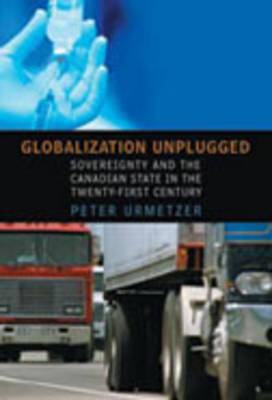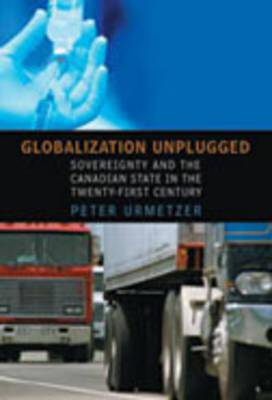
- Afhalen na 1 uur in een winkel met voorraad
- Gratis thuislevering in België vanaf € 30
- Ruim aanbod met 7 miljoen producten
- Afhalen na 1 uur in een winkel met voorraad
- Gratis thuislevering in België vanaf € 30
- Ruim aanbod met 7 miljoen producten
Globalization Unplugged
Sovereignty and the Canadian State in the Twenty-First Century
Peter UrmetzerOmschrijving
The debate over economic globalization has reached a fever pitch in the past decade and a half with Western governments and multinational corporations trumpeting its virtues and a multitude of activists and developing-world citizens vociferously denouncing it. Both sides would agree that globalization is a recent development that is changing the way people and nations do business, but in Globalization Unplugged, Peter Urmetzer questions whether national economies are losing their sovereignty and whether the topic of globalization merits as much discussion as it receives.
Urmetzer's focus is specifically on Canada and he demonstrates that current levels of trade are not unprecedented and, further, that as the economy becomes more service oriented, it will also become less trade dependent. He points out that only a relatively small percentage of Canada's wealth is owned by foreign investors and likewise, only a small portion of the country's wealth is located outside of its borders.
Disputing claims that the nation-state is weakening or disappearing altogether, Urmetzer shows how the welfare-state side of government spending - conveniently ignored in the anti-globalization literature yet arguably the most significant development in the political economy of the nation-state in the twentieth century - remains remarkable stable. Written with precision and skill, Globalization Unplugged will spark controversy on both sides of the globalization debate and help deflate the rhetoric of both advocates and detractors.
Specificaties
Betrokkenen
- Auteur(s):
- Uitgeverij:
Inhoud
- Aantal bladzijden:
- 240
- Taal:
- Engels
- Reeks:
Eigenschappen
- Productcode (EAN):
- 9780802037992
- Verschijningsdatum:
- 17/06/2005
- Uitvoering:
- Paperback
- Formaat:
- Trade paperback (VS)
- Afmetingen:
- 155 mm x 230 mm
- Gewicht:
- 376 g

Alleen bij Standaard Boekhandel
Beoordelingen
We publiceren alleen reviews die voldoen aan de voorwaarden voor reviews. Bekijk onze voorwaarden voor reviews.











